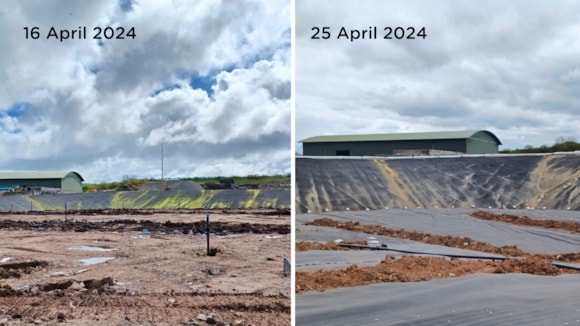News
Report criticises teacher training
A MAJOR investigation into the standard of Initial Teacher Training (ITT) in Wales has uncovered huge insufficiencies in its provision.
Professor John Furlong carried out the report having been commissioned in 2014. The report starts by stating that: ‘Initial teacher training in Wales needs to change and for two quite different reasons. Firstly, it needs to change because despite some strengths in current provision there is a widespread consensus that overall, it is not of sufficient high quality to serve the needs of Wales either now or in the future. But there is a second and perhaps even more important reason that reform is needed and that is to do with the changing nature of schooling in the 21st century’.
The report goes on to point out that ITT is not as strong as it should be, and that current requirements in key aspects fall well short of what the international evidence suggests is best practice. Professor Furlong added: “As a consequence, newly qualified teachers are not conceptualised nor is there a requirement that they are prepared to be active professionals, with their own judgements to make and with their own responsibilities as leaders of children’s learning.”
He goes on to criticise the link between the university teaching and what is required in the classroom, saying: “Given that there is no reference whatsoever in the Standards to research or the need to develop student teachers as critical consumers of or participants in research, there is little requirement on the part of universities to help their staff develop as research active university lecturers. Again, in other jurisdictions, standards set out a very different vision for the contribution of universities.”
He continued by saying: “At present it seems that most schools have only a small role in professional education, often with very small numbers of students. Teacher education is undertaken primarily on a voluntary basis – an ‘add on’ to schools’ normal work. Internationally however, there is strong evidence that in the most effective systems, universities work with much smaller numbers of schools which take larger numbers of students. Moreover, schools themselves are encouraged to take leading responsibility in key aspects of the training programme. One particular difficulty in encouraging schools to work in closer partnership with universities on a regular basis is that it is indeed voluntary. As a result, it is widely reported that few schools are willing to make long term commitments, often withdrawing, sometimes at the last minute, particularly if they are facing an Estyn inspection.”
Criticising university provision he also stated: “The fact that teacher education remains very much a university led process in Wales does not necessarily mean that the sector has been well served by contemporary universities. On a number of key indices, teacher educators themselves seem less well supported than their colleagues in other disciplines and in other parts of the UK.”
The report made 7 key recommendations:
That the Welsh Government, as a matter of priority, revises the standards for Newly Qualified Teachers
- That the Welsh Government establishes a revised accreditation process for providers of initial teacher education.
- That the Welsh Government establishes a teacher education accreditation board
- That the role of Estyn within initial teacher education be reviewed once a revised accreditation process is fully in place.
- That Estyn’s ‘Guidance for Inspection’ for schools be revised to include specific recognition of the contribution of a school to initial teacher education.
- That the Primary BA (Hons) QTS, in its current form, be phased out and replaced by a four year degree with 50% of students’ time spent in main subject departments.
- That the Welsh Government monitors closely the impact of financial incentives on recruitment, particularly taking into account different funding levels in comparison with those available in England.
Responding to the report and its contents, Education Minister, Huw Lewis said: “I very much welcome this report and its recommendations and would like to thank Professor Furlong for his commitment, impartiality and professionalism. The case for change is compelling. It is clear that if we want to raise standards, we must produce newly qualified, reflective practitioners with the appropriate qualifications, skills and resilience to support the sort of curriculum change recommended by Professor Donaldson in his recent report. In principle, I would disagree with nothing contained in Professor Furlong’s report. We must now move to consider the reform options and implementation methods in greater detail and this is something that will require full engagement with the teacher training sector. We will also work to ensure the sector remains viable while we make what needs to be a smooth transition to a new model of teacher training.”
Angela Burns, AM and Shadow Minister for Education, said: “There is a consensus that teacher training in Wales is not sufficiently robust to drive up standards and enable young people to compete in the global race. How can we possibly expect teachers to nurture the potential of their class and stretch every child to realise their talents if we don’t do the same for teachers? Learning is a rewarding lifelong activity, which everyone, regardless of their profession, can find enriching, but it is especially important that teachers who instil a thirst for learning, should be able to take advantage of it themselves. Labour Ministers must consider these recommendations and act to improve initial teacher training, invest in continuous professional development and cut out bureaucracy to free up teachers to spend more time learning.”
From a leading teaching union, Owen Hathway, NUT Wales Policy Officer, said: “We will obviously have to examine the full recommendations in detail, however, we do welcome the general thrust of some of the content. It is important that any changes to teachers training programmes fit with the vision for the future of the profession articulated in the Donaldson Review of the Curriculum – teachers will need to be confident, creative designers of learning and curriculum that is built on developing the whole child to be a flexible, confident learner, rather than being merely deliverers of subject knowledge or curricula devised elsewhere. It is important that current inconsistencies in initial teacher training provisions, reported by ESTYN and highlighted by Tabberer in his review, are addressed so that regardless of where in Wales teachers train they can benefit from high quality academic and pedagogical experiences. Moving forward we will be discussing the implications of the review with the Welsh Government and working closely with them to ensure the best system possible for our teaching profession and the pupils they support.”
The University of Wales Trinity Saint David (UWTSD) sent The Herald a detailed response to the report, stating: ‘We welcome Professor John Furlong’s recommendations on the future of initial teacher education in Wales in his Teaching Tomorrow’s Teachers report. The partnership between the university and schools, as part of the South West Wales Centre of Teacher Education, means that we are in a strong position to work collaboratively to implement the changes required to the current system, to attract the best candidates to the profession and to ensure the continued professional learning and development of teachers throughout their careers. UWTSD is committed to and highly values its role in the initial education of those entering the teaching profession as well as its role in supporting members of the education workforce in their career-long professional learning. The South West Wales Centre of Teacher Education, located within UWTSD, has been working hard to build on the strengths noted in the most recent monitoring report from Estyn (July 2014) and is well placed to work collaboratively within the education sector to support the processes of change and improvement on the horizon. UWTSD is working pro-actively to build and develop the research capacity of staff involved in both initial and continuing professional teacher education, many of whom have a strong track record of leadership within the school education sector. The value of applied and policy-focused research is one of the University’s underpinning values and is well evidenced through the work of the Wales Centre of Equity in Education, established as a partnership between University of Wales and UWTSD in 2013, under the directorship of Professor David Egan, who is himself an adviser to the Welsh Government on education policy. The opportunity to further develop pedagogically-focused research with our partners is welcomed’.
Business
Largest Welsh port appoints communications and marketing director

THE Port of Milford Haven has announced that Anna Malloy has been appointed as its first Communications and Marketing Director.
Anna is appointed to the Senior Management Team and this new role will be pivotal to the delivery of the Port’s long-term growth and diversification agenda and in ensuring that its obligations to coastal communities, future generations and to nature are honoured.
Tom Sawyer, CEO of the Port of Milford Haven, congratulated Anna and said: “Anna has a key role to play in our future and it’s doubly lovely to see ‘port-grown-talent’ flourish and for colleagues to progress up through our organisation.”
Anna will lead across the public affairs, marketing, sustainability, media relations, and community relations activities. She will therefore play a central role in the development of new and existing partnerships, including the Celtic Freeport, the Milford Haven Energy Cluster and the Celtic Collection; sitting alongside the delivery of major projects like Milford Waterfront and the Pembroke Dock Renewables Terminal.
“This is such an exciting opportunity. I am proud to be joining the Senior Management Team and look forward to delivering our ambitious strategy,” commented Anna Malloy, Communications and Marketing Director.
She added: “The Port of Milford Haven is playing a key role in the transition of South-West Wales’ economy to a decarbonised future. A beautiful place, with great people, that I am privileged to call my home.”
Community
First deadlines met following enforcement action at landfill site

THE first set of deadlines for the completion of actions to tackle the ongoing odour issues at Withyhedge Landfill in Pembrokeshire have been met, one week on following the issuing of further enforcement action by Natural Resources Wales (NRW).
NRW issued site operator Resources Management UK Ltd (RML) with a further Regulation 36 Enforcement Notice on Thursday 18 April.
This outlined a series of actions to be completed by specified deadlines to address the ongoing odour and landfill gas emission issues at the site.
During the latest site inspection which took place yesterday (Thursday 25 April), NRW was able to confirm that three actions have been completed – two ahead of the imposed deadlines.
The operator has installed 24 pin wells, which have been driven into the waste in the lower section of the cell identified as causing the odour issues (Cell 8). These have also been connected to the landfill gas extraction system.
Capping material has been placed over the same area of the cell and welded to the basal liner to encapsulate gas in this area, allowing for extraction by the pin wells and four horizontal gas wells, which were previously installed.
While progress is being made, NRW officers detected strong landfill gas odours during an offsite assessment on Wednesday (24 April) in Poyston Cross and Crundale. Weather conditions this week appear to have led to a wider spread of landfill gas to surrounding areas, not solely linked to wind direction.
NRW odour assessments follow a set route around the landfill, with designated survey spots, identified to enable consistency of assessment and reporting. This is essential to ensure the regulatory and enforcement responses where there is offsite odour attributed to the landfill is robust.
The remaining Regulation 36 Notice actions will require significant effort by RML to ensure they are completed on time and NRW continues to closely monitor progress.
Clare Pillman, Chief Executive of NRW, met with representatives from NRW’s South West Industry Regulation Team and Pembrokeshire County Council during a visit to Pembrokeshire on Thursday 25 April.
Clare Pillman, Chief Executive, Natural Resources Wales, said: “While visiting the area surrounding Withyhedge Landfill with our regulatory team and partners from Pembrokeshire County Council this week, I was able to see and hear for myself just what people living and working in these communities have had to endure as a result of the odour issues from the site.
“What they have been experiencing is unacceptable and our officers have been working tirelessly alongside colleagues at Pembrokeshire County Council to ensure the operator gets this under control as quickly as possible. While it was clear that a lot of work has been done on site, there is still more to do to ensure they address all the actions set out in the enforcement notice.
“We want to make sure that happens, and are exploring every option together with Pembrokeshire County Council to ensure the operator works quickly to resolve the issues which are clearly affecting the quality of life of people in these communities.”
Huwel Manley, Head of South West Operations, said: “While we are reassured that action is being carried out by the operators at Withyhedge Landfill with a sense of urgency, we are continuing our regulatory presence on site to ensure the operator’s focus remains on tackling the issues that will address the continuing odour issues being experienced by surrounding communities.
“We will be closely monitoring progress over the coming days and weeks to ensure the operator complies with all the actions set out in Notice by 14 May. If they are not met, we will pursue additional enforcement action where appropriate.”
NRW requests that instances of odour from the landfill continue to be reported via this dedicated form: https://bit.ly/reportasmellwithyhedge or by calling 0300 065 3000.
Please report odours at the time of them being experienced, rather than historically. Reporting odours in a timely manner will help guide the work of partners more effectively, particularly in the further development of air quality monitoring.

Community
Milford Haven’s war memorial is 100 years old today

THE Milford Haven War Memorial, a significant landmark commemorating the fallen heroes of World Wars and subsequent conflicts, marks its 100th anniversary today.
The memorial, which was inaugurated on April 26, 1924 by the Venerable the Archdeacon of St Davids, remains a poignant symbol of sacrifice and hope for peace.
Constructed from 1923 to 1924, the memorial consists of a striking assembly of pink granite and white marble statues that were sculpted in Italy.
Representing the Army, Navy, and Air Force, these life-size statues stand on an unpolished three-step plinth below a main pedestal. A soldier faces west and a sailor east, with an airman atop the central column, surveying the skies.

The names and inscriptions of the fallen are carved into the polished granite shaft, meticulously supervised by surveyor J.P. Morgan with contractor E. Jones of Llanybydder.
Located on Hamolton Terrace with views over the Milford Haven waterway, the memorial is a freestanding structure in an external, roadside setting. It features a serviceman/woman sculpture in marble and Portland stone, set on a concrete base surrounded by railings. Inscribed plaques honour those who served in the First and Second World Wars, the Korean War, and the conflict in Iraq from 2003 to 2009.
The memorial lists the names of 239 men who perished in the First World War on its polished grey granite faces. The Second World War claimed 157 lives from this community, whose names are recorded on bronze plaques around the base. Notably, the memorial also honours one serviceman who fell during the Korean War and another who was killed in Iraq in 2007.
The Milford Haven War Memorial stands not only as a historical monument but also as an enduring reminder of the costs of war and the community’s ongoing commitment to peace.
As the town reflects on a century of remembrance, the hope remains that future generations will continue to cherish and learn from the lessons of the past.

-

 News2 days ago
News2 days agoPolice and air ambulances at ‘serious incident’ at West Wales school
-

 News6 days ago
News6 days ago20mph U-turn: Some roads will return to 30mph following public outcry
-

 Community6 days ago
Community6 days agoMiracle pup finds her forever home after heart-wrenching journey
-

 Crime2 days ago
Crime2 days agoPembrokeshire pensioner accused of 17 sexual offences against children
-

 Crime1 day ago
Crime1 day agoAll three school stabbing victims discharged from hospital, police confirm
-

 Community3 days ago
Community3 days agoCounty Hall to offer space for community banking
-

 Crime4 days ago
Crime4 days agoBrian Davis: Wanted on suspicion of commercial burglary
-

 Education6 days ago
Education6 days agoTarget of 1m Welsh speakers by 2050 is “almost impossible”























